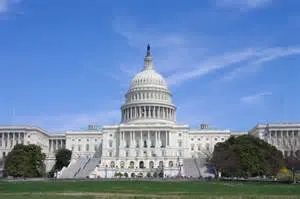WASHINGTON (AP) — Members of California’s congressional delegation on Monday applauded the U.S. Supreme Court’s decision upholding the use of independent commissions to configure electoral districts.
Now, some lawmakers want to help spread the concept to other states.
In 2008, California voters approved giving the once-a-decade responsibility for drawing political districts to an independent commission. Then-Gov. Arnold Schwarzenegger, a Republican, led the effort after decades of heavy gerrymandering had left most legislative and congressional races uncompetitive.
The high court, with a 5-4 decision, rejected a constitutional challenge in Arizona to the use of independent commissions.
California Rep. Nancy Pelosi, the House minority leader, said the public has long questioned the fairness of legislators overseeing redistricting and had hoped for a more objective process.
“With the court’s decision and the clear public sentiment, it behooves the Congress to pass legislation setting national standards for state redistricting commissions,” Pelosi, a Democrat, said in a statement.
Democratic Rep. Zoe Lofgren has sponsored longshot legislation that would require each state to establish an independent, multi-party redistricting commission to draw congressional district maps.
California’s use of an independent citizens commission to draw political boundaries hasn’t been kind to Republicans in the state’s congressional delegation. Under the new system, the GOP’s numbers have fallen from 19 to 14 over the past two election cycles.
Still, there’s little enthusiasm among GOP lawmakers for returning to days when the state Legislature determined the boundaries of the state’s 53 congressional districts — not with Democrats running things in Sacramento.
Analysts said Republican congressman David Valadao of Hanford would face the possibility of a more Democratic-leaning district if the California Legislature had its way.
“It wasn’t perfect, but it was a much more transparent process and I believe most people actually had the opportunity to have some input,” Valadao said of the commission system in advance of the court’s decision.
Even Republicans who likely would have remained in GOP strongholds weren’t enamored with the prospect of returning redistricting powers to the Legislature.
“The way it is now in California, it’s as good as we can get it,” said Duncan Hunter Jr., a Republican lawmaker whose father served in Congress from 1981-2009. “I remember when my dad used to go up to Sacramento once a year and lobby for his district, along with every other California member of Congress, Democrat and Republican. I don’t believe you should have to do that.”
Democratic Rep. Eric Swalwell defeated veteran Democratic Rep Pete Stark three years ago in a San Francisco Bay Area district, in part due to the commission’s work, he said. He also took advantage of another unique feature of California congressional elections, in which the top two finishers in a primary advance to the general election, regardless of political affiliation.
“Only because of that commission, I had a fighting chance at beating a 40-year incumbent from my own party,” Swalwell said. “Today’s decision upholds the idea that citizens may be empowered to draw congressional districts that provide for free and fair elections.”





